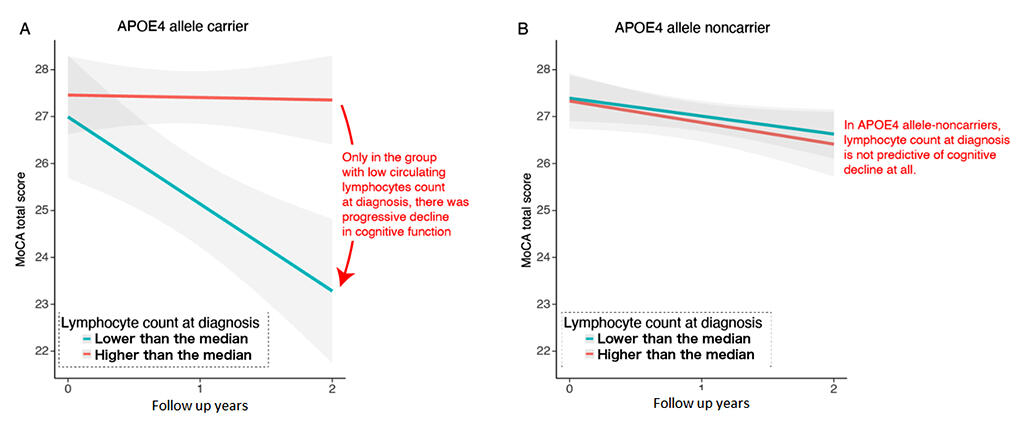Parkinson's disease has the second highest prevalence among all neurodegenerative diseases, behind only Alzheimer's disease. The number of Japanese patients with Parkinson's disease is estimated to be between 150,000 and 200,000. The prevalence rate of this disease increases in elderly people, reaching 1 in 100 for people aged 65 years and older. The number of patients with Parkinson's disease is expected to increase as the population ages. Some patients with Parkinson's disease may progress to dementia; but advance prediction and intervention is difficult, owing to large inter-individual variability.
Using data from a retrospective cohort study, doctoral student Kazuto Tsukita (currently specially appointed researcher at Teikyo University; and specially appointed researcher at Sleep Medicine Research Institute, Kansai Electric Power Medical Research Institute), doctoral student Haruhi Sakamaki-Tsukita, and Professor Ryosuke Takahashi, all from the Graduate School of Medicine Kyoto University, found that in Parkinson's disease patients with the APOE4 allele, a unique decrease in blood lymphocyte counts at diagnosis accurately predicts a subsequent decline in cognitive function over time. In patients without the APOE4 allele, no association was found between the decrease in blood lymphocyte counts and cognitive decline at diagnosis. Mr. Tsukita said, "Cognitive decline is a major factor in the inability of Parkinson's disease patients to live independently. Peripheral blood lymphocyte counts can be detected using regular blood tests; so, early intervention in patients with the APOE4 allele may be able to help realize personalized medicine." These findings were published online in Movement Disorders.
The APOE4 allele is a genetic risk factor that leads to cognitive decline in approximately 10% of Japanese patients. The risk of Alzheimer's disease is approximately three-fold higher with one allele and 15-fold higher with both alleles. Even in Parkinson's disease, the presence of at least one APOE4 allele increases the risk of dementia by approximately 1.5-fold. From a population perspective, Parkinson's disease progresses gradually and often warrants assistance for daily life activities 10 to 15 years after diagnosis. However, on an individual basis, the disease course is diverse, and some people have lived independently for more than 20 years. If a patient with rapidly worsening symptoms can be identified and intervention/treatment can be performed at an early stage, improvement in individual quality of life as well as reduction in medical expenses can be achieved. However, to date, no early predictive marker has been discovered.
As there are no factors identified to predict cognitive decline that work in concert with the APOE4 allele, the study group searched for markers predicting cognitive decline in individuals with Parkinson's disease using the APOE4 allele and employing data from the Parkinson's Progression Markers Initiative (PPMI), an international cohort study. The researchers evaluated 167 Parkinson's disease patients with known APOE allelic types and available longitudinal data on cognitive function. Consequently, they discovered that peripheral blood lymphocyte counts at diagnosis accurately predict cognitive decline 2 years later in APOE4 allele carriers.

Provided by Kyoto University
Mr. Tsukita said, "Twenty-five of the 49 APOE4 allele carriers with low peripheral blood lymphocyte counts had cognitive decline, although this is data from Western countries and cannot directly be applied to the Japanese population." It was reported that in Parkinson's disease, "peripheral blood lymphocyte counts decrease, probably reflecting inflammation in the brain." The present study revealed that inflammation and the APOE4 allele in the brain may complementarily cause cognitive deterioration in Parkinson's disease. Mr. Tsukita said, "In the future, we expect to identify complementary effects in model organisms and develop drugs that can suppress inflammation in the brain."
This article has been translated by JST with permission from The Science News Ltd.(https://sci-news.co.jp/). Unauthorized reproduction of the article and photographs is prohibited.




